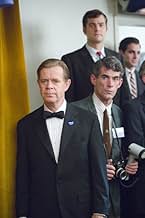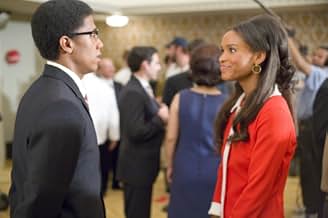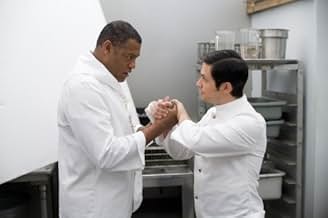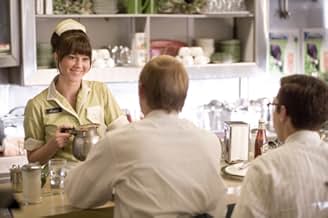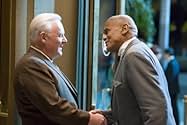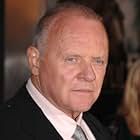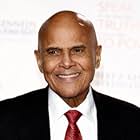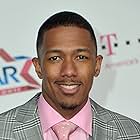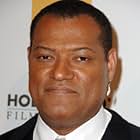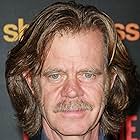The destinies of twenty two people of different races, sexes, beliefs and social classes are intertwined on the night that politician Robert F. Kennedy is assassinated.The destinies of twenty two people of different races, sexes, beliefs and social classes are intertwined on the night that politician Robert F. Kennedy is assassinated.The destinies of twenty two people of different races, sexes, beliefs and social classes are intertwined on the night that politician Robert F. Kennedy is assassinated.
- Awards
- 6 wins & 25 nominations total
- Director
- Writer
- All cast & crew
- Production, box office & more at IMDbPro
Storyline
Did you know
- TriviaAt one point during the script development, after developing a case of what writer and director Emilio Estevez called "paralyzing writer's block," Estevez set the script aside. Later, he checked into a remote hotel on the Central California Coast, near Pismo Beach, to work on the script. When he checked in, the woman at the desk recognized him, and asked what he was doing there. "I'm writing a script about the night Bobby Kennedy was killed," he told her. Tears instantly welled in her eyes. "I was there," she replied. Estevez interviewed the woman, who had been a volunteer for Robert F. Kennedy in 1968. He turned her personal story, which included marrying a young man to keep him out of Vietnam, into the Diane Howser character. Estevez said, "She really helped me crack the spine of the story and give it a beating heart. After that, it just started to flow."
- GoofsThe credits include the closing speech detailing the speech as "Robert F. Kennedy's speech, 'On The Mindless Menace of Violence.' The credits say it was delivered in Indianapolis, Indiana on April 5, 1968. This is incorrect; Robert Kennedy gave a speech on Martin Luther King, Jr.'s death in Indianapolis on the previous day but gave the speech presented on the recording at the City Club of Cleveland in Cleveland, Ohio.
- Quotes
Robert F. Kennedy: [voiceover] This is a time of shame and sorrow. It is not a day for politics. I have saved this one opportunity, my only event of today, to speak briefly to you about the mindless menace of violence in America which again stains our land and every one of our lives. It is not the concern of any one race. The victims of the violence are black and white, rich and poor, young and old, famous and unknown. They are, most important of all, human beings whom other human beings loved and needed. No one - no matter where he lives or what he does - can be certain who will suffer from some senseless act of bloodshed. And yet it goes on and on and on in this country of ours. Why? What has violence ever accomplished? What has it ever created? No martyr's cause has ever been stilled by an assassin's bullet. No wrongs have ever been righted by riots and civil disorders. A sniper is only a coward, not a hero; and an uncontrolled, uncontrollable mob is only the voice of madness, not the voice of reason. Whenever any American's life is taken by another American unnecessarily - whether it is done in the name of the law or in the defiance of the law, by one man or a gang, in cold blood or in passion, in an attack of violence or in response to violence - whenever we tear at the fabric of the life which another man has painfully and clumsily woven for himself and his children, the whole nation is degraded. "Among free men," said Abraham Lincoln, "there can be no successful appeal from the ballot to the bullet; and those who take such appeal are sure to lose their cause and pay the costs." Yet we seemingly tolerate a rising level of violence that ignores our common humanity and our claims to civilization alike. We calmly accept newspaper reports of civilian slaughter in far-off lands. We glorify killing on movie and television screens and call it entertainment. We make it easy for men of all shades of sanity to acquire whatever weapons and ammunition they desire. Too often we honor swagger and bluster and wielders of force; too often we excuse those who are willing to build their own lives on the shattered dreams of others. Some Americans who preach non-violence abroad fail to practice it here at home. Some who accuse others of inciting riots have by their own conduct invited them. Some look for scapegoats, others look for conspiracies, but this much is clear: violence breeds violence, repression brings retaliation, and only a cleansing of our whole society can remove this sickness from our soul. For there is another kind of violence, slower but just as deadly destructive as the shot or the bomb in the night. This is the violence of institutions; indifference and inaction and slow decay. This is the violence that afflicts the poor, that poisons relations between men because their skin has different colors. This is the slow destruction of a child by hunger, and schools without books and homes without heat in the winter. This is the breaking of a man's spirit by denying him the chance to stand as a father and as a man among other men. And this too afflicts us all. I have not come here to propose a set of specific remedies nor is there a single set. For a broad and adequate outline we know what must be done. When you teach a man to hate and fear his brother, when you teach that he is a lesser man because of his color or his beliefs or the policies he pursues, when you teach that those who differ from you threaten your freedom or your job or your family, then you also learn to confront others not as fellow citizens but as enemies, to be met not with cooperation but with conquest; to be subjugated and mastered. We learn, at the last, to look at our brothers as aliens, men with whom we share a city, but not a community; men bound to us in common dwelling, but not in common effort. We learn to share only a common fear, only a common desire to retreat from each other, only a common impulse to meet disagreement with force. For all this, there are no final answers. Yet we know what we must do. It is to achieve true justice among our fellow citizens. The question is not what programs we should seek to enact. The question is whether we can find in our own midst and in our own hearts that leadership of humane purpose that will recognize the terrible truths of our existence. We must admit the vanity of our false distinctions among men and learn to find our own advancement in the search for the advancement of others. We must admit in ourselves that our own children's future cannot be built on the misfortunes of others. We must recognize that this short life can neither be ennobled or enriched by hatred or revenge. Our lives on this planet are too short and the work to be done too great to let this spirit flourish any longer in our land. Of course we cannot vanquish it with a program, nor with a resolution. But we can perhaps remember, if only for a time, that those who live with us are our brothers, that they share with us the same short moment of life; that they seek, as do we, nothing but the chance to live out their lives in purpose and in happiness, winning what satisfaction and fulfillment they can. Surely, this bond of common faith, this bond of common goal, can begin to teach us something. Surely, we can learn, at least, to look at those around us as fellow men, and surely we can begin to work a little harder to bind up the wounds among us and to become in our own hearts brothers and countrymen once again.
Like in all great ensemble movies, "Bobby" offers a stellar cast, none of whom disappoint. From the neurotic and self-conscious character of Samantha (played by Helen Hunt) to the outspoken, confident Edward Robinson (Laurence Fishburne), there is a vast mixture of personalities that work to provide a complex interwoven plot line. But the most notable performance (and the most surprising) is that of Virginia Fallon. Brillianty portrayed by Demi Moore, Virginia is a foul-mouthed, insecure alcoholic who sways around on screen in delicate form, both heartbreaking and beautiful to watch.
Director-writer Emilio Estevez put his heart into this project. The direction is without a doubt highly impressive. The subtle colorful hues reflect the emotional grip of each scene, and extenuate a modern feel to the film. He puts us head-first in the crowd that witnessed the assassination of Robert F. Kennedy, on what would seem to be one of the most heartbreaking moments in American history.
But what really stands out in this movie is not the screenplay, nor directing, nor acting. The emotional intensity is brilliantly brought out through the use of sound. An actual audio footage of RFK is heard in the background as the tense score sways by over the muted dialogue. And what works for this type of film-making is the amount of anticipation it builds up, and even after pivotal scenes, the impact it leaves on the audience.
There is a key scene in the movie in which all the characters prepare to greet RFK when the energy of the entire screen seemingly drips with positivity towards the American society. It's as though we forget the fatal tragedy and give into the thought of this story having a happy ending. We are reminded of classic ensemble films such as "Short Cuts", "Magnolia" and "Crash" and immediately juxtapose that feeling.
Though I do fear that politically this movie may not hit home for a lot of the critics once it hits a wide release, it is definitely going to leave a lasting impression on the majority who sees it. It's a movie that presents a magnificent cast, superb directing, and flawless scriptwriting. An undoubtedly obvious ingredient for the Awards season.
- How long is Bobby?Powered by Alexa
Details
- Release date
- Country of origin
- Languages
- Also known as
- El día que mataron a Kennedy
- Filming locations
- Production companies
- See more company credits at IMDbPro
Box office
- Budget
- $14,000,000 (estimated)
- Gross US & Canada
- $11,242,801
- Opening weekend US & Canada
- $69,039
- Nov 19, 2006
- Gross worldwide
- $20,718,608
- Runtime1 hour 57 minutes
- Color
- Sound mix
- Aspect ratio
- 2.35 : 1
Contribute to this page





